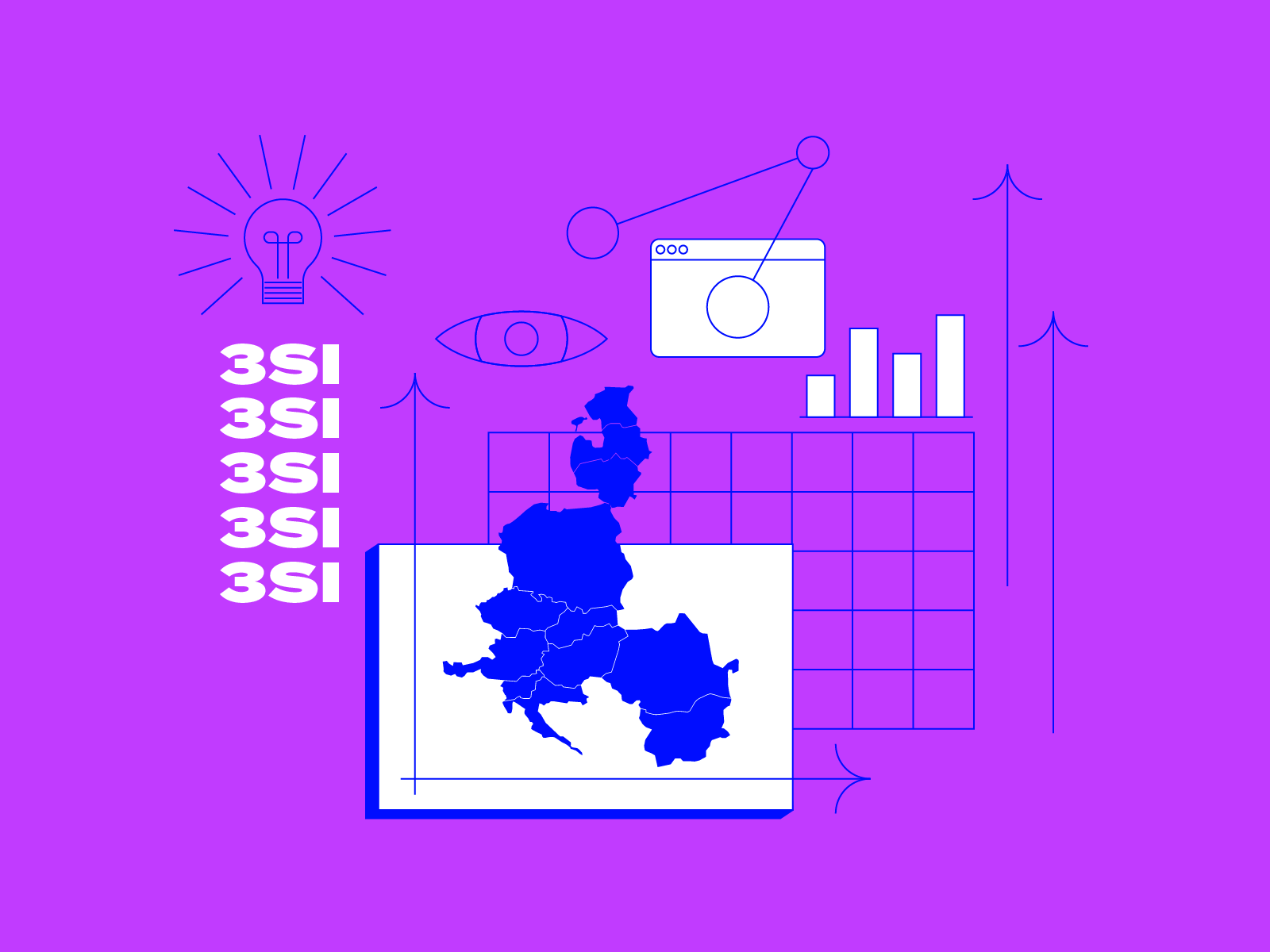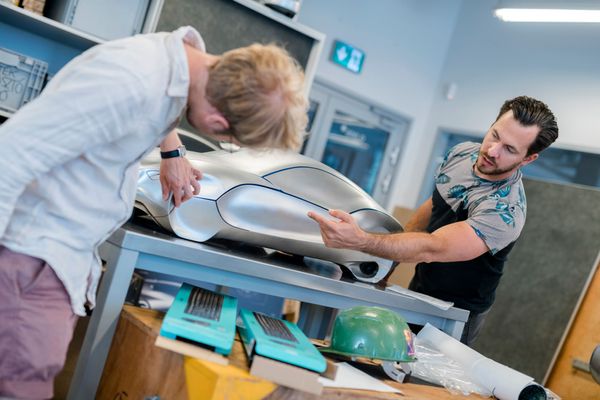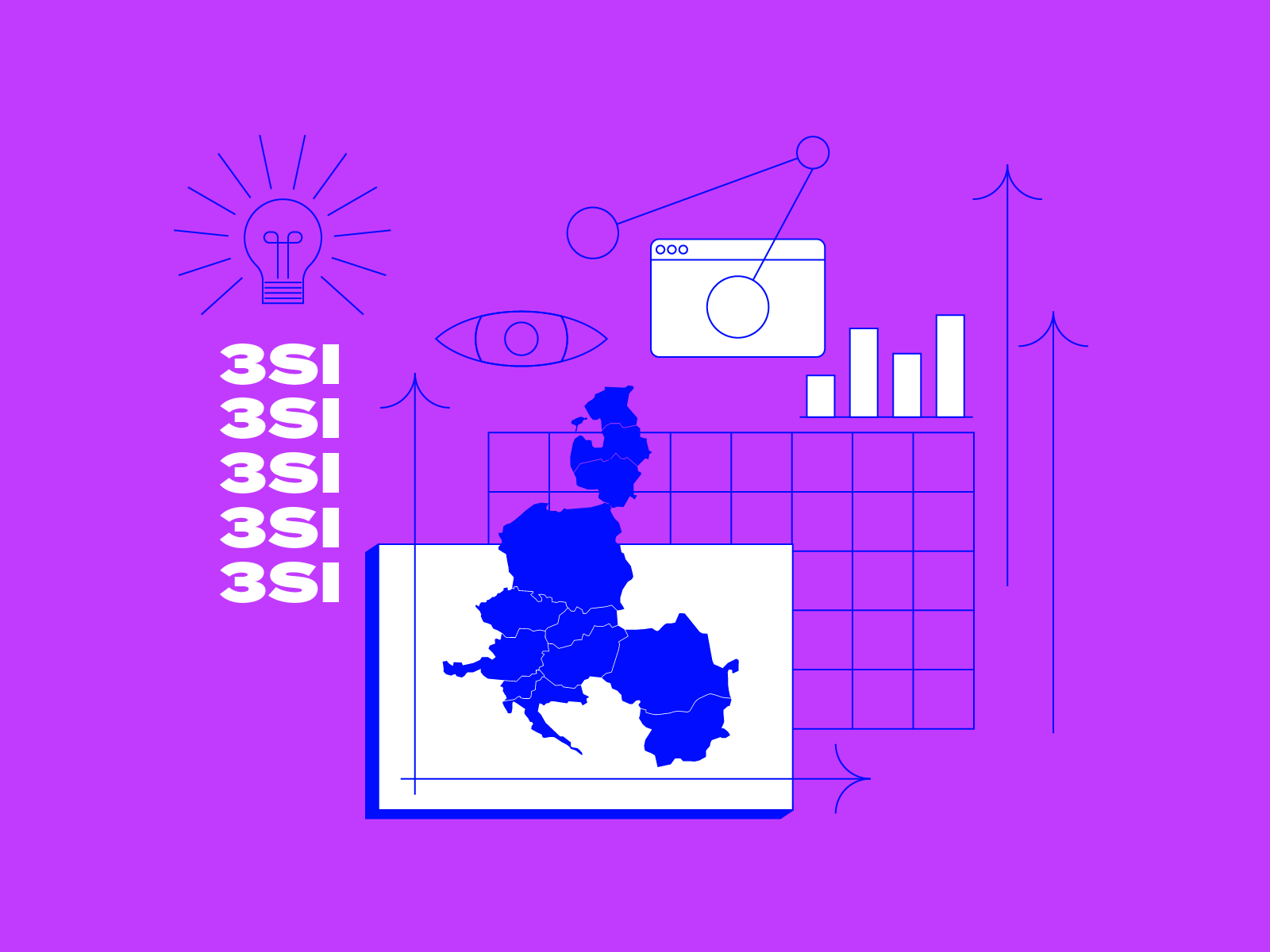The mission approach can help a lot in innovation. We need clear indicators, clear targets, adequate funding, small, agile, and hard-working teams, and full transparency – this was the conclusion of the mission-oriented innovation panel in the economic forum of the Three Seas Initiative, held in Riga. Conference coverage from Hype&Hyper.
The panelists were Neville Reeve, Head of Sectors for Missions in DG Research and Innovation at the European Commission; Rainer Kattel, Professor of Innovation and Public Governance at University College London; Joanna Franzén, Programme Manager at Vinnova, Sweden’s Innovation Agency; Piret Tõnurist, OECD Lead on Anticipatory Innovation Governance and Missions, and John Abel, Technical Director, Office of the CTO at Google Cloud Platform. The discussion was moderated by Kaspars Rožkalns, Director General of the Investment and Development Agency of Latvia.
One of the key points was already mentioned in the introduction: „not to create the infrastructure of the past.” It is clear that one of the watchwords is innovation, and to achieve it, the 12 TSI countries’ mindsets need to be aligned.
According to Kattel, we still need to go back to the original idea of missions when we discuss them at present, namely to the space race in the 1960s, which generated many benefits and laid the foundations of today’s digital economy. The focus of technical innovation should undoubtedly be on the solutions to the enormous challenges we face: we should create new economic activities, new business models, new jobs, and new opportunities. The most crucial aspect of the idea of missions is to create a vast experimental area. For instance, one technology is not enough for zero-carbon energy, unlike in the space race. We should take many technologies into account, such as wind power and solar energy, and we cannot forget households’ needs and energy consumption habits either.

Tõnurist believes that we need a crisis to achieve a mission, just as the race to the Moon happened during the Cold War. A great mission shows a clear direction; we identify an existing societal problem, understand it, and as a response, we innovate to solve it. Thus, a good mission always has an end point: we either reached the Moon, or we did not, a human came back to Earth alive, or they did not. So, there must always be a feedback system.
Abel works with emerging technologies at Google, so he always looks three to five years ahead. He said that he accepts failure since they have not tried hard enough if there is no failure. When they set budget cycles and investment plans, they have to accept that some aspects will not deliver what was expected, which is fine if they can learn from the mistakes. The Moon landing did not start with the Moon; it must not be forgotten that humans took many small steps to get there.
If several parties can work as partners in a joint project, and they agree on and understand what the end result should be, then there is a greater chance of success, or at least understanding of the failure, than when they try to work alone. Abel believes we should not work separately since we share one planet. He highlighted that it is better to ensure we can work together.
Franzén and her team started working on mission-oriented innovation in 2019, knowing that time not more about this approach than the framework by Mariana Mazzucato. They started revising their workflows based on the framework, followed by a few years of experimentation. During this process, they realized that they need small, agile, hard-working, and flexible teams for the most effective solutions.
Tõnurist thinks that responsibility should be given to someone to lead the mission. Even if it is a small and agile team genuinely focused on achieving results, not everyone will be on the board at once. It simply cannot be expected from all members to get down on their knees and say that their project is the best thing in the world.
Those who have been reluctant to innovate before, start getting on board when they see the first evidences that show that it makes sense to go in that direction. That is why we need small, agile teams that are responsible for making sure that their experimentation has meaningful results and they do not get lost along the way. Not all innovation needs to be mission-oriented, but if it is, it contributes much to its success.
According to Tõnurist and Reeve, over-complication should be avoided, and full transparency of information is essential. The work of the different small teams must be harmonized. Clear indicators are also necessary since if we do not know what we want to reach, we will not know whether we succeeded or failed. An interesting question was raised: could a government led as a small, agile team be successful?
Google is interested in closer cooperation with the Central and Eastern European countries, as they are very diverse. To get more people involved in the cooperation, the countries’ differences and diversity must be considered. The TSI countries cannot be treated as a uniform group.
Abel thinks governments should probably revise some of their mission activities in light of the current worsening security situation, which could, for instance, open up further opportunities in green energy. So, more missions, on a smaller scale, but precisely on target.
The current crisis affects every country in Central and Eastern Europe, primarily through the energy sector. Everyone wants a lower electricity bill, but a solution will require academia, governments, and organizations, especially industrial players, to work together. There is an online community of data scientists and machine learning practitioners called Kaggle; one of its goals is to make more data available. It is the largest data community in the world where people can openly research data and collaborate with each other. Kaggle’s model could inspire Central and Eastern Europe.
Kattel said that missions are necessary because neither the private nor the public sector invest enough in the European economy. Thus, the two sectors should be encouraged to work together to a greater extent. The professor believes we cannot afford to have governments as isolated as now.
Franzén highlighted that our energy bills in November will be much higher than they were before. Therefore, we need a mission: a very practical one; about communication. We had wonderful and successful missions during the COVID-19 pandemic to get the vaccine, as we all understood that we needed it: we needed a solution to get our normal life back. Experts must learn to communicate the new mission regarding energy bills pragmatically to show average citizens why they should care and what they can do. Then the businesses will have an incentive to invest and to experiment as the ultimate goal for everyone is to reduce our energy bills.

Portugal’s flavors and colors in a restaurant in Wrocław | MARTIM

MOME’s new vehicle design studio, the Mobility Design Lab, has been inaugurated | Interview about the past and future of vehicle design I.










